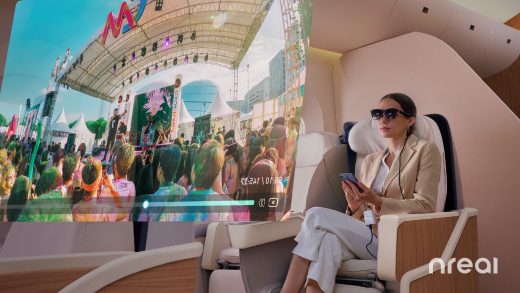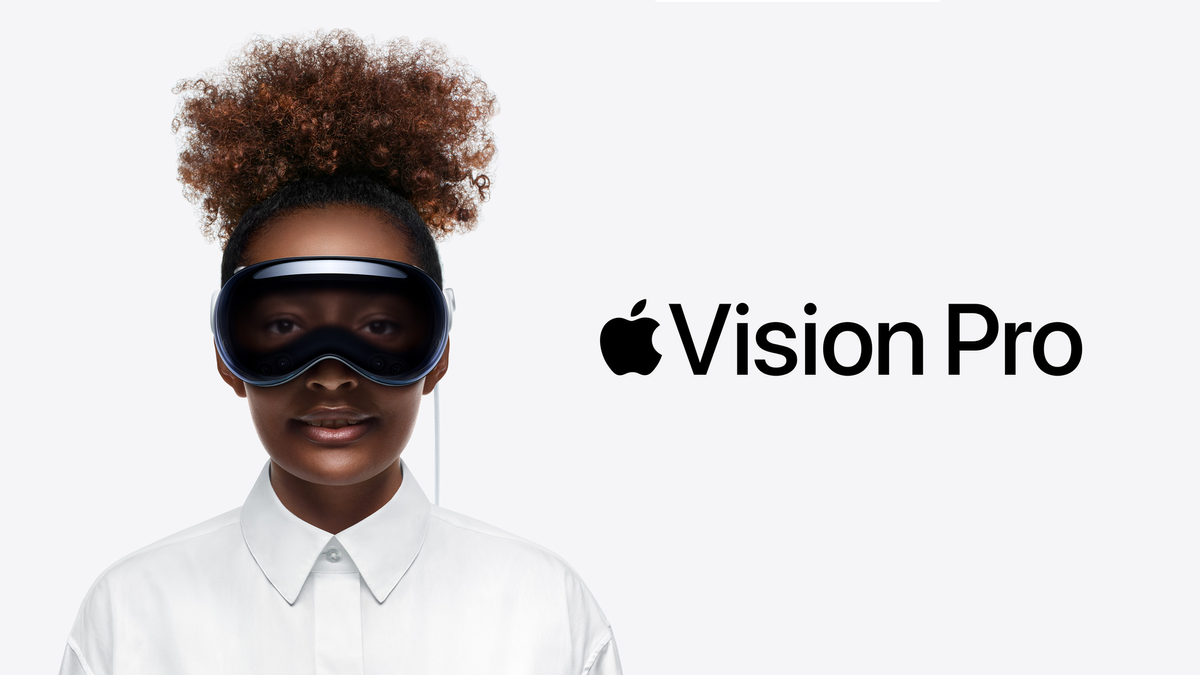
Apple Vision Pro has officially launched in the US. In-store pickups are happening right now and deliveries are arriving.
Vision Pro is exclusively available from Apple’s US web store and physical Apple Stores in the US.
The $3500 base model has 256GB of storage. A 512GB storage model is available for $3700, while 1TB is priced at $3900.
Apple previously said Vision Pro will come to other countries “later” in 2024, but hasn’t yet confirmed which countries this will include.
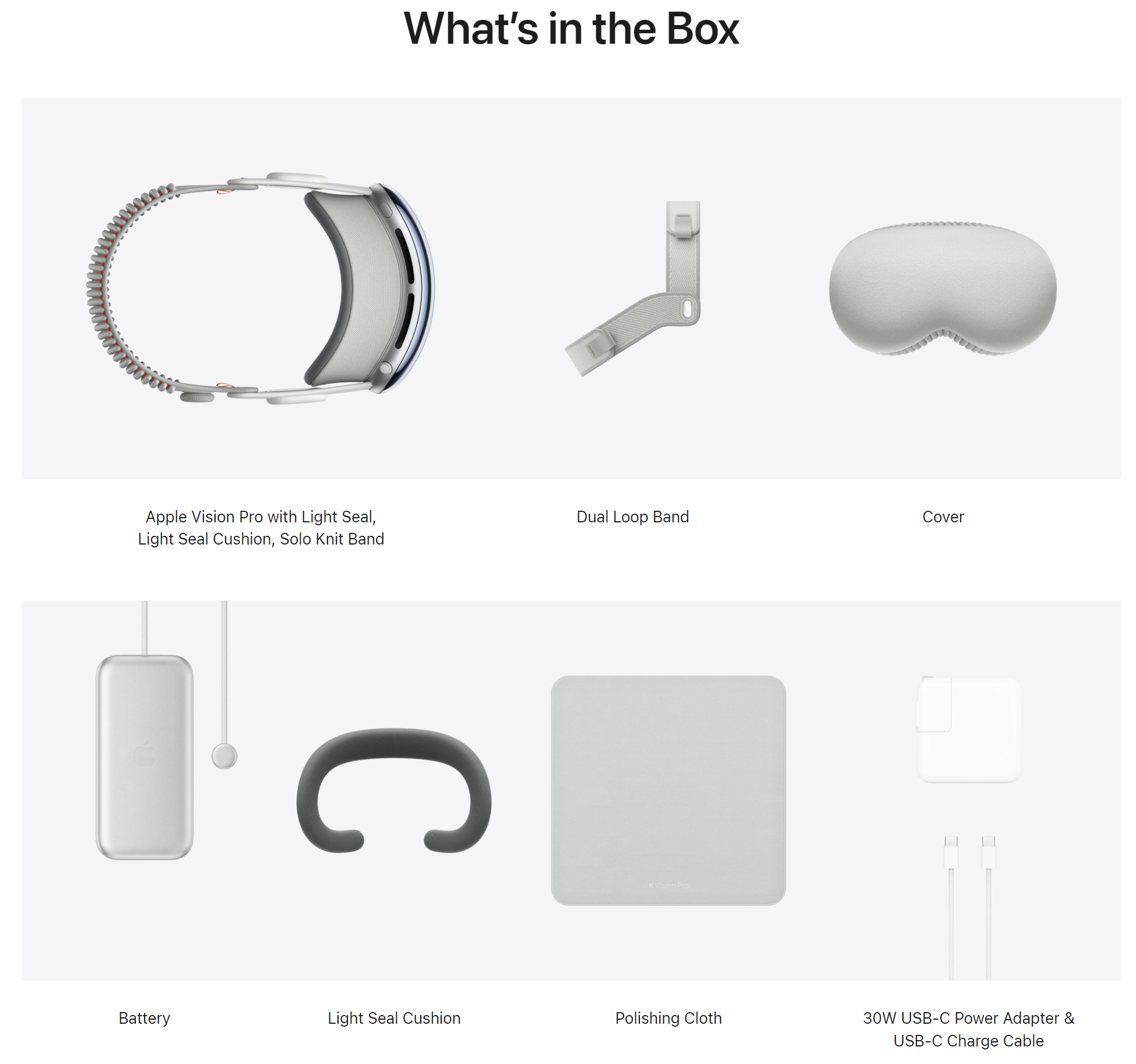
To place an order online you need an iPhone or iPad Pro with Face ID to scan your face. Apple uses the scan to determine the best size of Light Seal (what other headset makers call the facial interface) and head bands to include with your Vision Pro. In-store, the employees will perform this scan for you.
Two different head bands come in the box, the Solo Knit Band and the recently announced Dual Loop Band. The Dual Loop Band is generally considered a necessity for comfort.
Vision Pro doesn’t support glasses, but optical inserts from ZEISS are available for $100 for readers or $150 for prescriptions.
Two optional accessories are available for Vision Pro at launch: a $200 official Apple travel case, and a $50 battery holder from Belkin that can clip to your belt or trousers.
What The Mainstream Apple Vision Pro Reviews Say About It
The mainstream media Apple Vision Pro reviews are in. Here’s a summary of the good, the bad, and the ugly:
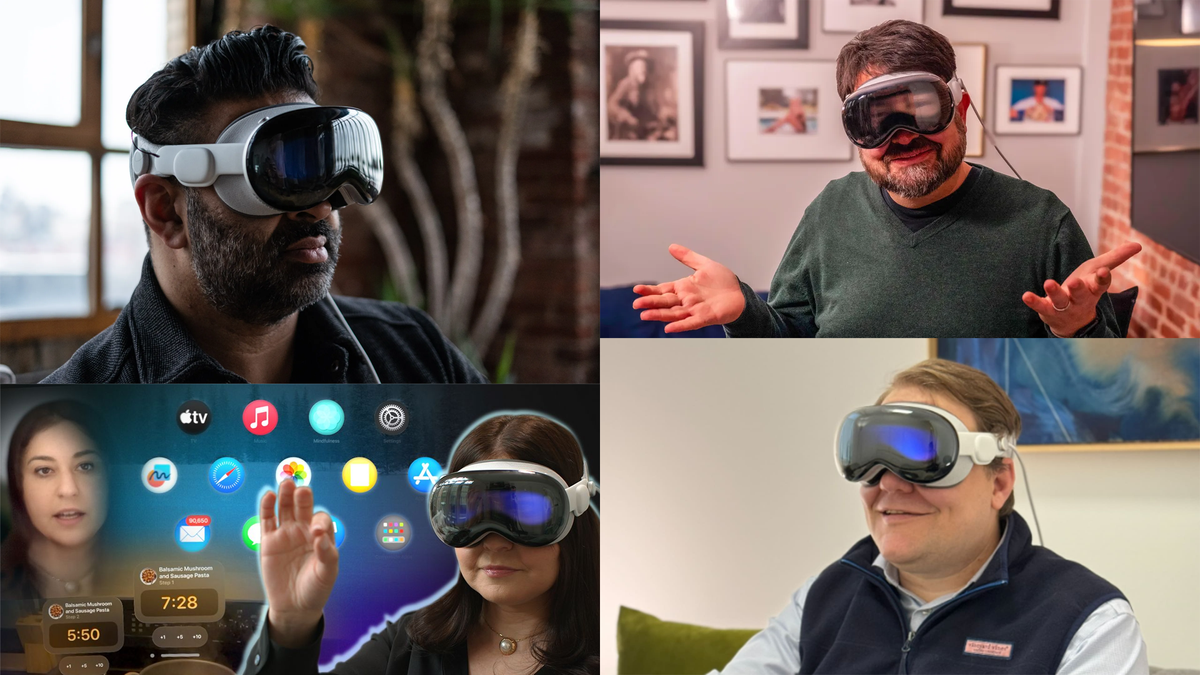
What Exactly Is Apple Vision Pro?
Apple Vision Pro is a physically opaque VR-style headset that can use its high-resolution passthrough cameras to show you your real environment with virtual interfaces and objects added to it, or a fully virtual world instead.
A dial on the side called the Digital Crown is used to gradually transition between full AR and full VR.
Apple Vision Pro Specs, Features & Details
Apple officially revealed the full Vision Pro specs when opening preorders today. Read our specs breakdown and comparison to Quest 3 here:
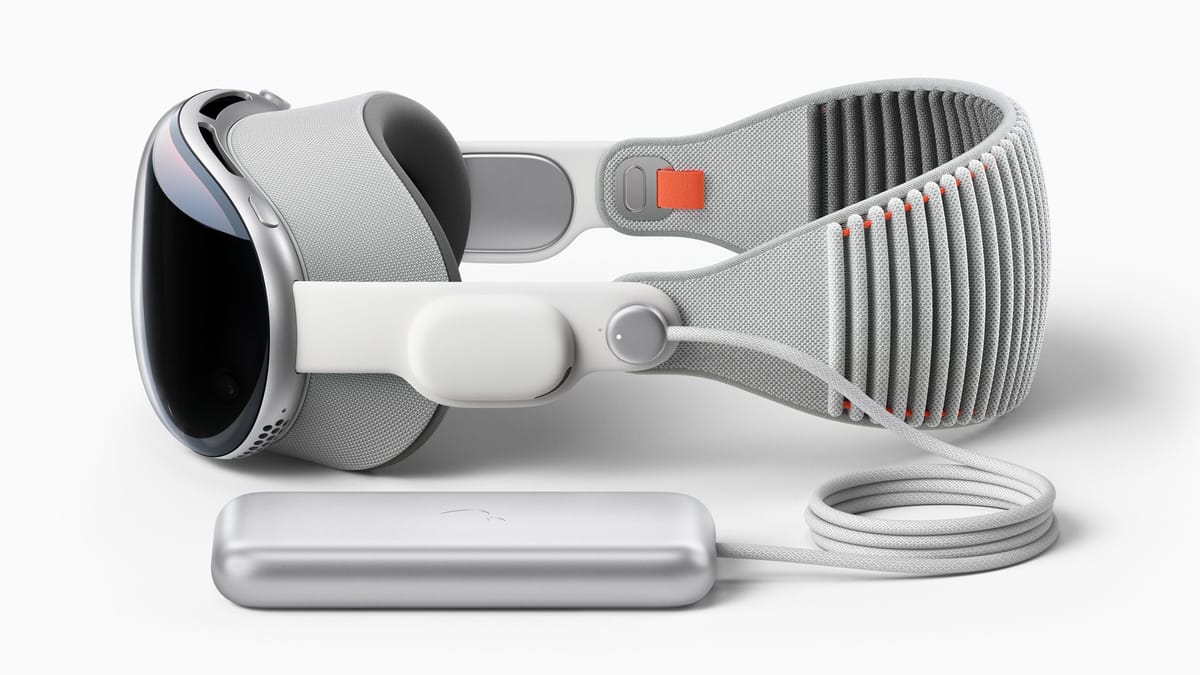
Vision Pro is powered by Apple’s M2 chipset, also seen in Macs and iPad Pro, alongside a new R1 chipset used to process its plethora of sensors. All this power means the headset uses a tethered external battery, with a battery life of around 2 hours. It can also be plugged into a wall for perpetual use.
The headset uses near-4K OLED microdisplays for each eye, which should give it the highest resolution of any consumer headset when it ships. Uniquely, Vision Pro also has an ‘EyeSight’ lenticular display on the front that shows a rendered view of your upper face to other people in the room when they’re nearby.
Vision Pro’s operating system, visionOS, is controlled with eye tracking and hand gestures. Your eyes are the targeting system, like moving your mouse or hovering your finger over a touchscreen, while pinching your index finger and thumb together is the equivalent of the click or tap.
How You Control Apple Vision Pro With Your Eyes & Hands
Apple explained how exactly your eyes and hands work together to control Vision Pro:
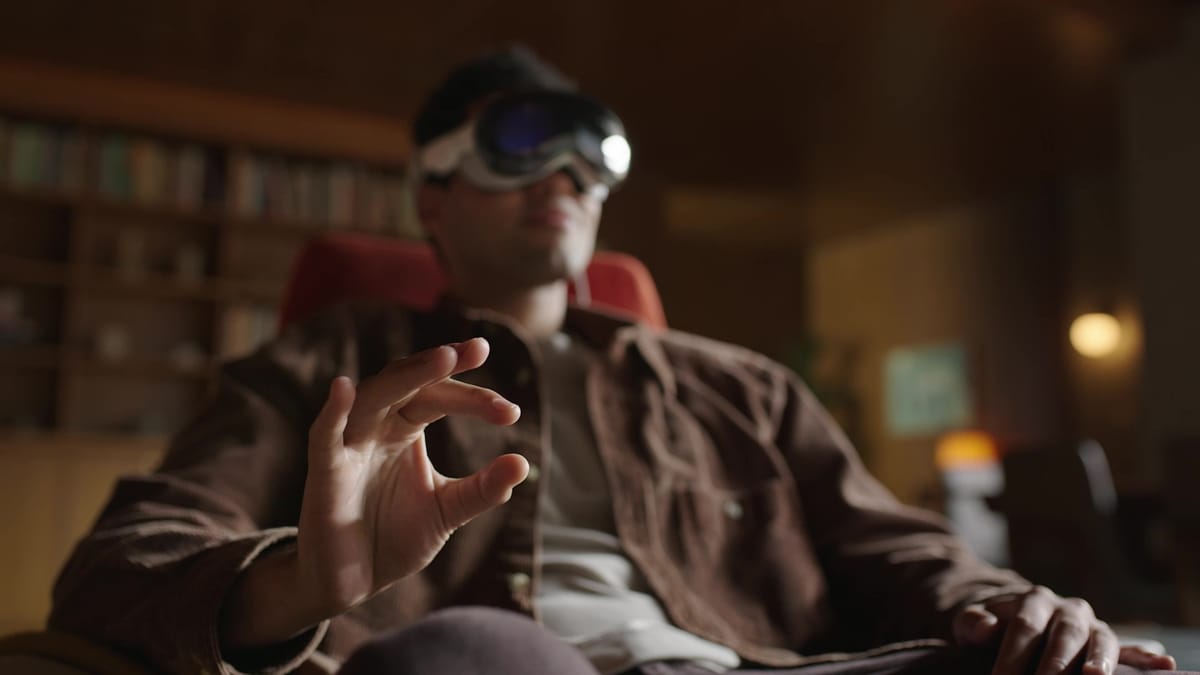
iPad and iPhone apps are available on Vision Pro’s App Store “by default”, but some developers are opting out from making theirs available. Developers can also build a native visionOS version of their app and use Apple’s Universal Purchase cross-buy system to offer it for free to customers who have already bought it on iPhone or iPad, and vice versa.
For productivity, the headset supports running multiple windows side-by-side on large virtual screens, and Apple’s Magic Keyboard and Magic Trackpad are supported for input. You can also mirror your Mac’s display onto a virtual screen.
For entertainment, Apple is offering 4K and 3D movies on a giant virtual screen, either in AR or a VR environment, as well as immersive 180-degree 8K videos and fully immersive true VR experiences.
For gaming, you can play iPad games on a huge virtual screen with a gamepad, or AR/VR games like Rec Room, Demeo, What the Golf?, and Super Fruit Ninja.
The headset can also capture and play 3D videos called Spatial Videos, which you can also capture with iPhone 15 Pro.
Apple Vision Pro Hands-On: Way Ahead of Meta In Critical Ways
Apple Vision Pro is the real deal. This is the future of personal computing. Our first hands-on report:
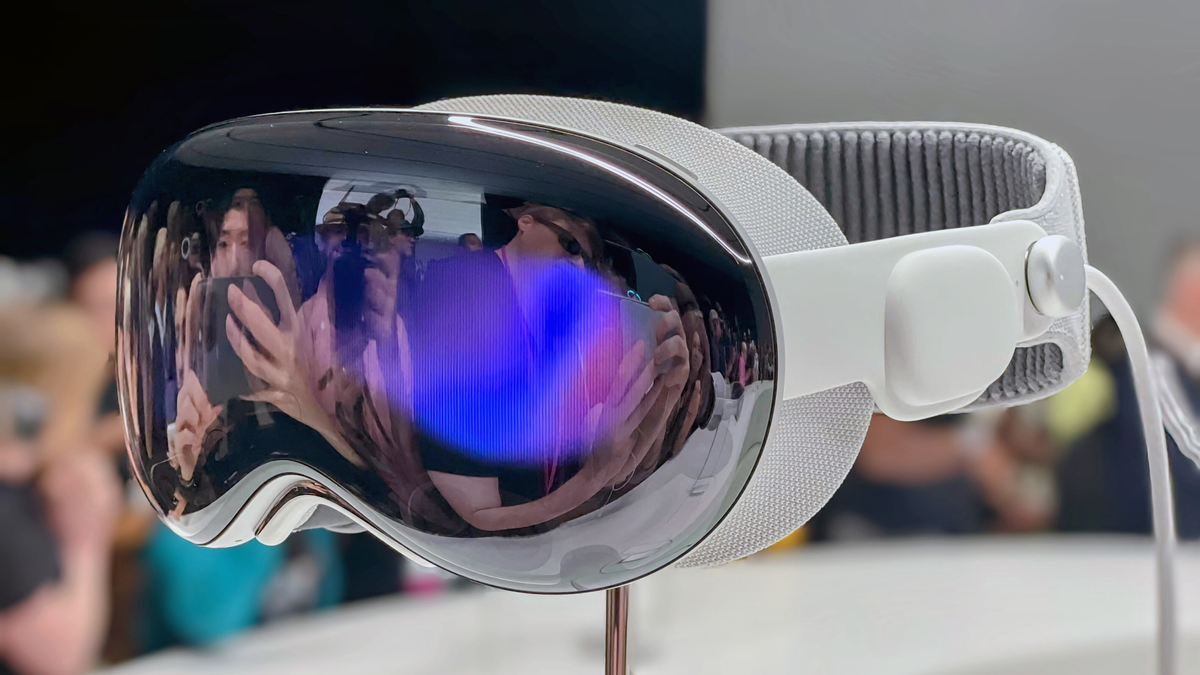
Apple Vision Pro: The Digital Crown Tunes Your Reality
Turning Apple Vision Pro’s Digital Crown is a bit like tuning your reality. Read our hands-on impressions from our second demo here:

Vision Pro introduces new features and specs never before shipped in a headset, and combined with its innovative visionOS, its release by the world’s largest and most prominent technology company represents a watershed moment for the industry.
